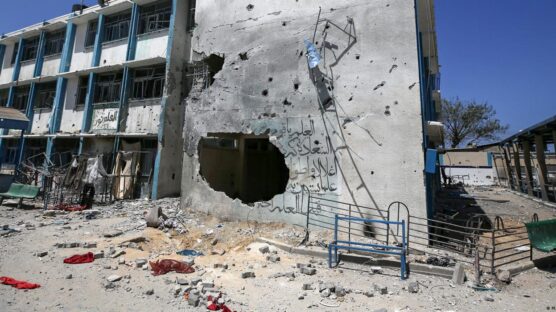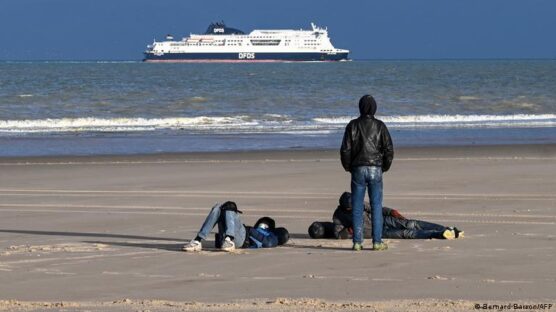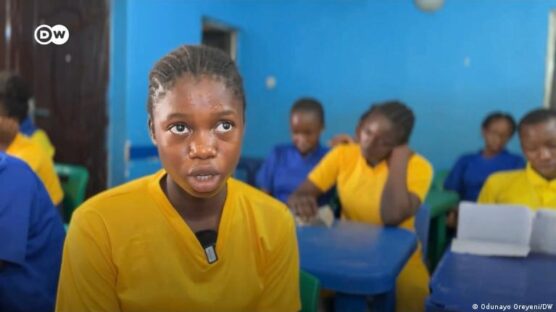War in Ukraine: Irpin residents return to ruins after Russian withdrawal
By France24
16 May 2022 |
2:45 pm
The Ukrainian resistance in Irpin played a key role in holding off the Russian advance on the capital Kyiv during the first few weeks of the war. But the middle-class commuter town paid a heavy price. More than 300 civilians were killed and tens of thousands fled. Now, more than a month after the Russian withdrawal, residents are beginning to return to try to rebuild their lives. Reconstruction is slowly getting under way, but an estimated €800 million is needed to build new homes. FRANCE 24's Nadia Massih, Bastien Renouil and Raïd Abu Zaideh report from Irpin.
Related
Related
1 day ago
Unrelated images are going viral on social media, claiming to show last Friday's retaliatory strike by Israel on Iran. In this edition of Truth or Fake, we tell you what we know about this footage, based on verified images.
1 day ago
A review of the UN agency's neutrality was prompted by Israeli accusations that aid workers in Gaza were "terrorists." An independent panel says Israel provided no evidence to back the claim.
1 day ago
North Korean state media has claimed Pyongyang tested a "nuclear trigger" simulation drill as a "warning signal" to the US and South Korea.
1 day ago
At least five people are reported to have died in an attempt to cross the English Channel. Only hours earlier, the UK Parliament voted to deport some of those who enter Britain illegally as a deterrent to migrants.
5 hours ago
Since 2015, the number of malaria cases worldwide have stalled and ― in some areas, they're even increasing. That's after two decades of falling numbers. What's going on?
Latest
30 mins ago
Will it be enough to dissipate doubt over Ukraine's ability to hold out in a war of attrition with Russia? After months of delay, the US House of Representatives has finally approved a $60 billion military aid package for Kyiv.
30 mins ago
A school in the Nigerian administrative capital city of Abuja offers teaching to students at a 100 Naira ($0.86) per day. It enables poor parents and daily income earners to send their children to get secondary school education.
4 hours ago
Aigboje Aig-Imoukhuede, the Chairman of Access Holdings says the move by the group to raise $1.5 billion over five years reflects the financial institutions growth plans. Speaking with CNBC Africa's Kenneth Igbomor, Aig-Imoukhuede reiterates that the decision for a rights issue was in line with the role of its shareholders in the growth of the bank over the years.
5 hours ago
Infusions, anti-aging creams or anti-stress drops made from cannabis are some of the food supplements that Morocco will begin to market imminently and that are already on display at the International Agriculture Exhibition (SIAM) inaugurated this Monday, after legalization of this plant in 2021 for pharmaceutical and industrial uses.
1 day ago
Find these stories and much more when you grab a copy of The Guardian on Wednesday.
1 day ago
The heat of the Premier League title race is on and big games are coming this midweek. Arsenal at the Emirates will take on Chelsea, Everton will entertain Liverpool, and Manchester City will be up against Brighton. Ayomide Sotunbo and Hogan Niyi preview the games in this week's edition of The Nutmeg.
×

Get the latest news delivered straight to your inbox every day of the week. Stay informed with the Guardian’s leading coverage of Nigerian and world news, business, technology and sports.


















0 Comments
We will review and take appropriate action.